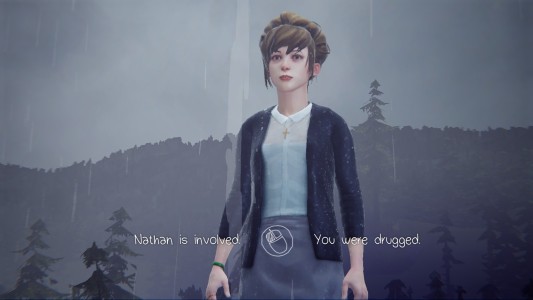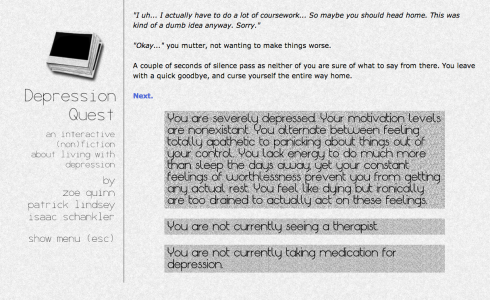Almost every aspect of gaming has evolved exponentially over the past few years. Graphics have grown from single pixels dancing across your screen, to spectacles so realistic, one could mistake them for television. But as gaming has matured, so have the the narratives delivered within them, showing that just because “game” is in the name, doesn’t mean that real feelings and issues can’t be addressed. Titles like Tomb Raider have come under attack for including dark themes such as sexual assault, while others have included similar subject matter in much more tasteful and meaningful ways.
In January of 2015, Square Enix released its first episodic title Life is Strange, the tale of a High School student with supernatural abilities. To the pleasant surprise of many, Life is Strange has been a smashing success. With likeable characters, a compelling narrative, and an almost indescribable charm, the latest installment in Square Enix’s library is a pleasure to play. But things are not all happy in Arcadia Falls, the hometown of our main characters. You play as Maxine Caulfield, a High School senior at the prestigious Blackwell Academy.
The lives of the colorful cast are not without their dark spots. For example, Chloe, Max’s best friend, struggles with a somewhat abusive step father who is plagued by P.T.S.D. She also deals with drug problems and abandonment issues as well after losing her father, coupled with the disappearance of her other best friend. On the surface she seems like an angsty teen, but after exploring her room, you find clues pointing to a young woman who was not ready for the “real world” she has encountered.
Kate Marsh is a fellow classmate of Max’s and falls victim to not only date rape, but severe bullying, forcing her to contemplate suicide. This particular story thread comes to a boiling point in episode two and really forced me to stop and take in the gravity of this games narrative.
At no point do plot points feel cheap, or merely used for their shock value. A carefully crafted story, and skillfully performed voice acting foster a growing sense of concern in the player. This was further enforced in the actual gameplay as players really cannot do a thing to stop it, but instead can only support the victim, mimicking the real world sense of helplessness one can feel in the face of bullying.
Gone Home is another hit title, which Life is Strange seems to draw from for inspiration at times. In this first person indie title, you play as Kaitlin, a college student who has been backpacking across Europe. Upon returning home, you find that your parents are away, and in their absence your younger sister, Samantha, has run off.
While exploring your home, you learn about the romantic journey she has been on during your year long trip abroad. Samantha has fallen in love with her best friend, Lonnie. This innocent and at times puzzling relationship blossoms so naturally and carefully that you cannot help but sit back in awe of how beautiful it is.
Samantha and Kaitlin’s parents do not agree however, and shun their daughter for her budding romance with Lonnie. They shrug off her new sexual preference off as a “phase”. This event mirrors the challenges many young people sadly must face with their own families. Again, this tender subject is handled with the tact and sensitivity it deserves.
Many other subplots are present as well, such as their father’s employment troubles, and their mother’s possible infidelity. These intertwined stories culminate to create a family and narrative that feels true to life. Realistic graphics and gameplay may be considered the most important part of gaming innovation by some, but making these characters feel this real is equally important.
Depression Quest was released in 2013, and attempted to create an understanding between Sufferers and non-sufferers of Depression. By making choices, that were at times limited on purpose, players could get a sense of what it was like to go through daily life in this frame of mind. You are presented with things you would like to do, but you simply cannot, much in the same way sufferers of Depression may experience.
Audio and visual prompts simulate a variety of emotions that simulate tension and various other emotions, so strongly that I had to walk away from the computer at times. Not only do games like this invite introspection, they bring another reality to the fore. Games always have an end, they are always tidied up and resolved, but this game denies you that. There is no ending, and no safe single answer to it’s subject matter.
With powerful examples such as these, it really is a testament to the fact that games, like movies, books, and television programs, can deliver mature themes and stories, despite being games. Gaming is entering a stage in which its community is aging, and those players expect their games subject matter to mature with them. This growing phase will have it’s misfires, and misrepresentations, especially in terms of marketing. By being forced to cut up these serious in game events for things like trailers, devs run the risk of seeming cheap, adding these plot points for some sales numbers.
But if gamers continue to clamor for real meaningful content the way we have for these aforementioned titles, I am sure gaming will move forward in the right direction.





